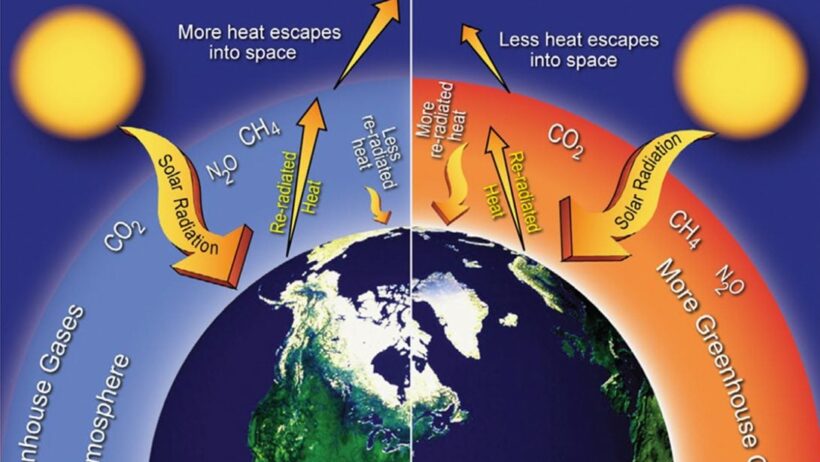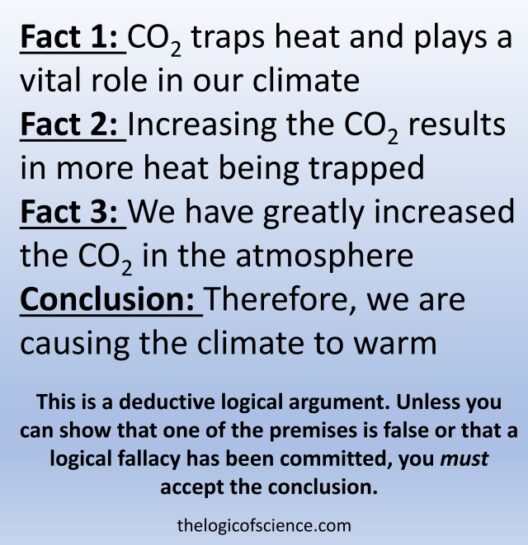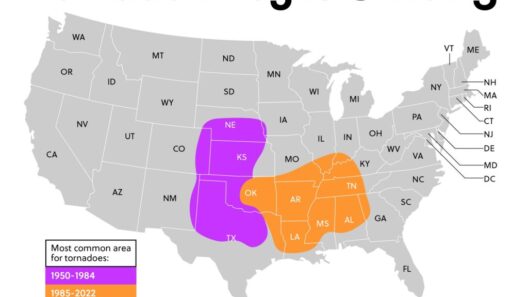Climate change, a pressing phenomenon, has often been inexorably linked to the emissions from fossil fuels. This connection, while undeniably significant, overlooks a plethora of other contributors that cumulatively exacerbate our planet’s warming. It is crucial to expand our understanding beyond the confines of fossil fuels to unveil the broader tapestry of long-term climate change causes. Among these myriad factors, deforestation emerges as a pivotal element, stimulating a reevaluation of our environmental priorities.
To elucidate this point, one must first recognize the essential role of forests in our ecological system. Trees, often regarded as the lungs of our planet, play a vital role in absorbing carbon dioxide (CO2) – one of the primary greenhouse gases. Through the process of photosynthesis, trees convert CO2 into oxygen, mitigating the impact of greenhouse gas accumulation in the atmosphere. However, the rampant deforestation sweeping across the globe threatens this delicate balance. Each year, millions of acres of forests are razed to make way for agriculture, urban development, and other human activities. This not only releases stored carbon back into the atmosphere but also diminishes our planet’s capacity to absorb future emissions.
Furthermore, deforestation is not merely an isolated act; it possesses a cascading effect. The destruction of forest ecosystems erodes biodiversity, leading to species extinction and habitat loss. Healthy forests are teeming with diverse life forms, each playing a distinctive role in their environment’s stability. The extinction of a single species can create a ripple effect, destabilizing entire ecosystems and further aggravating climate instability. Thus, deforestation exacerbates climate change through both direct emissions and indirect ecological consequences, establishing it as a significant yet often undervalued contributor to global warming.
Moreover, the drivers of deforestation extend beyond the immediate actions of logging and land clearing. Economic incentivization often propels these destructive practices. In many developing nations, forests are viewed primarily as resources for exploitation. The allure of quick profits from timber sales, agricultural expansion, or mining activities often outweighs the long-term environmental costs. Such short-sighted economic models ignore the services provided by forests: regulating water cycles, maintaining soil integrity, and sequestering carbon over extended periods. This myopic approach not only jeopardizes local economies reliant on ecological health but also accelerates climate degradation on a global scale.
Addressing this intricate dilemma necessitates a paradigm shift. As we confront climate change, our strategies must encompass sustainable forest management practices that prioritize conservation and restoration. The concept of reforestation can serve as a powerful countermeasure. By actively planting trees to restore deforested areas, we can recuperate lost carbon storage capacity and rejuvenate fragmented ecosystems. However, this effort demands a collective commitment from governments, organizations, and individuals alike. It is imperative to transition towards policies that incentivize forest preservation and reforestation while designing economic systems that value sustainability over exploitation.
Furthermore, the notion of agroforestry arises as an innovative approach to combat deforestation while addressing food security challenges. This practice entails augmenting agricultural lands with tree planting, creating synergistic relationships between crops and trees. Not only does this method enhance soil health and increase biodiversity, but it also generates additional income through timber and non-timber forest products. This dual benefit fosters community engagement in conservation efforts, reshaping the narrative surrounding land use and climate change. By harmonizing agricultural needs with forest preservation, we can cultivate systems that resist the allure of climate-accelerating activities.
In parallel, global awareness and education concerning deforestation and its catastrophic implications must escalate. Societal pressure can incite transformative changes in corporate behavior and governmental policy. Consumer choices also carry substantial weight; prioritizing sustainably sourced products can diminish the demand for the products driving deforestation. Thus, fostering an informed populace is crucial to engendering a cooperative movement towards ecological sustainability and resilience.
Importantly, one must also consider the interrelation between deforestation and other environmental issues, such as climate justice. Marginalized communities often bear the brunt of deforestation impacts, suffering from loss of livelihood and access to essential resources. Elevating these voices in climate discourse is vital for equitable solutions; environmental justice must be at the forefront of forest conservation initiatives. Acknowledging the multifaceted nature of climate change provides an avenue for holistic solutions that not only target CO2 emissions but embrace social equity and environmental stewardship.
In conclusion, while fossil fuels remain a predominant aspect of the climate change narrative, it is imperative to recognize that deforestation plays a formidable role in this alarming crisis. Understanding the multifarious causes of long-term climate change reframes the conversation, illuminating the interdependencies between human activity, environmental sustainability, and social equity. A commitment to combating deforestation can catalyze transformative change, enabling us to forge a healthier planet for future generations. It is our collective responsibility to advocate for policies that embrace forest preservation, incorporate sustainable practices, and promote awareness. Only then can we begin to chart a course towards a resilient and sustainable future.







